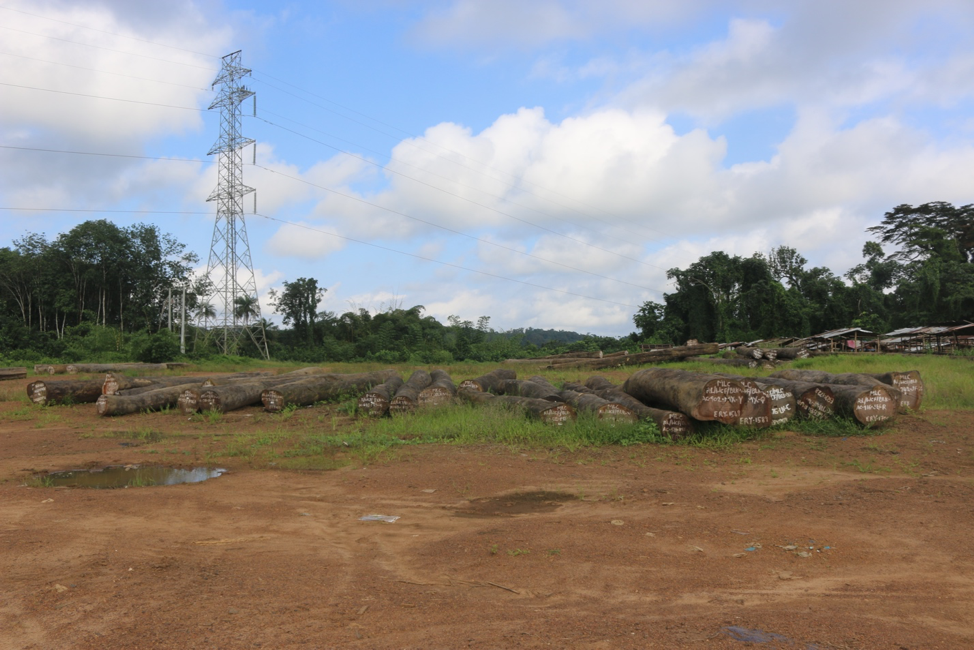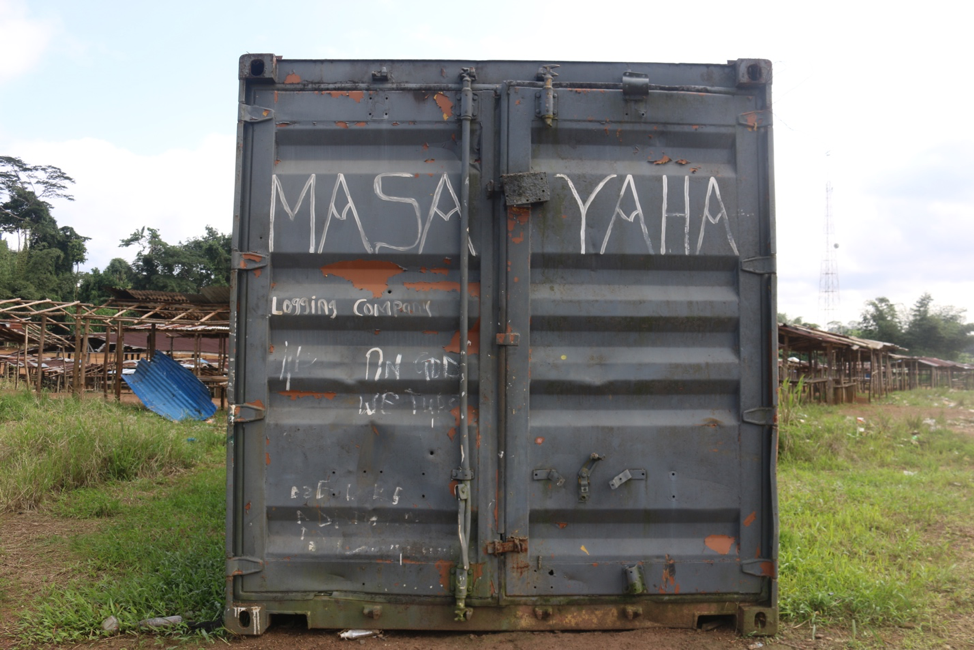Top: A Masayaha container at its log yard in Bokay Town, Grand Bassa County. The DayLight/James Harding Giahyue
By James Harding Giahyue
Editor’s Note: This is the fourth part of a series on a string of illegal activities by Masayaha Logging Company, which operates in Grand Bassa County.
SAUL TOWN, Grand Bassa County – Within the last three years, Lebanese logging firm Masayaha Limited Liability Corporation has harvested logs outside the Worr Community Forest in Compound Number One. An investigation by The DayLight uncovered the company has not been punished for those illegal activities and its abandonment of some 600 logs.
But the fact that the Masayaha does not have any legal rights to cut down a single tree in the Worr Community Forest remained unnoticed or unreported—until now.
Interviews with members of the leadership of the community show they are unaware of how Masayaha ended up in their forest. Magna Logging Corporation Inc., a company owned by Liberian businessman Morley Kamara, had signed an agreement with locals in August 2019 but gave way for Masayaha that same year in a secret deal.
“Masayaha and Magna agreement, we are not part of it. We don’t know how they went through their agreement,” said Alvin Fiske, the head of the Worr Community Forest’s leadership. “We expected every agreement we made with Magna be turned over.”
Fiske’s comments were corroborated by Garsayweh Harris, who advises Worr’s leadership.
The transfer from Magna to Masayaha was illegal and remains so. The Forestry Development Authority (FDA) must approve a transfer of license from one company to another, according to the National Forestry Reform Law, and the community ought to give its consent to such a deal under the Community Rights Law of 2009 with Respect to Forest Lands (CRL).
“Any decision, agreement or activity affecting the status or use of community forest resources shall not proceed without the prior, free and informed consent of the said community,” the CRL says in section 2.2, one of its guiding principles. The law is a crucial part of postwar forestry reform, which empowers communities to co-manage their forests alongside the FDA.
In September, Magna’s CEO Morley Kamara admitted that Masayaha was the actual operator of Worr. “Magna is not the operator of Worr concession,” Kamara said in an emailed response to queries on Masayaha’s illegal logging activities. “Please direct your questions to the right party.”
Kamara declined to comment on the illegal transfer when contacted earlier this month. “I do not report to newspapers, including yours but to FDA and the community. Do not contact me for future articles as well.”

Masayaha’s owner and CEO Ali Harkous did not reply to the WhatsApp messages we sent to him.
Read more on Masayaha:
It was unclear whether the FDA approved Magna’s transfer of logging rights in Worr to Masayaha, as such a document should be signed by the community. However, FDA is aware of Masayaha’s operations in the 35,337-hectare woodlands. The agency has sanctioned the Lebanese company’s production and export. And some official reports capture it, including the Liberia Extractive Industries Transparency Initiative (LEITI).
Illegal transfer of a forest resource license or part of it is a possible ground for termination of that license, according to the National Forestry Reform Law.
FDA’s Managing Director Mike Doryen and other top managers of the agency did not answer questions The DayLight posed to them via email. Doryen and co also did not grant our request for documents related to the two companies, public documents under forestry laws, regulations and Liberia’s Voluntary Partnership Agreement (VPA) with the European Union.
Magna’s illegal transfer to Masayaha the same year it signed the agreement with locals brings into question the company’s capacity to operate the contract area. In normal forestry practices, the FDA must make sure a company seeking a logging contract has the financial and logistical ability.
The story was a production of the Community of Forest and Environmental Journalists of Liberia (CoFEJ).




